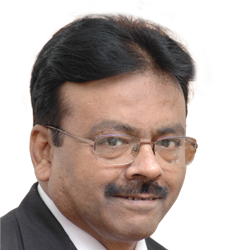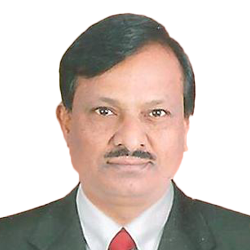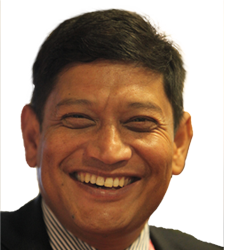Climate Change and Disaster Management
Theme: S&T Capacity Building in Climate Change – Way ForwardSpeakers

International Cartographic Association
Czech Republic

University of California
USA

Ministry of Earth Sciences
India

SPLICE & Climate Change Programme
Department of Science & Technology
India

University of Cagliari
Italy

Ministry of Earth Sciences
India

Indian Meteorological Department

Karnataka State Natural Disaster Monitoring Centre

Aerial Survey Limited
New Zealand

Group on Earth Observations (GEO)
Switzerland

Space Flight Laboratory
Canada

FARO India
India

International Center for Integrated Mountain Development (ICIMOD)
Nepal

Defence Terrain Research Laboratory

RIEGL Laser Measurement Systems
Austria

KQ GEO Technologies Co., Ltd
China

Indian Meteorology Department -Delhi
India

College of Engineering, Pune
India
Proposed Program Outline
24 January 2017
Geoinformation and Cartography in Early Warning And Disaster Management
Networking Tea/Coffee Break and Visit to Exhibition
Networking Lunch
Geo-Information as Actionable Information for Climate Change Resilience
Networking Tea/Coffee Break
Securing Habitats and Resources
Introduction
Climate change and natural disasters are global phenomenon with impacts across borders. No single country has the resources to fight climate change and its impacts on its own. Hence, international collaboration and multi-disciplinary approach are required to advance climate research and monitoring by ensuring that national investments are coordinated and mutually supportive, and to strengthen the ability of governments to minimise impacts.
The one-day programme on Climate Change and Disaster Management at Geospatial World Forum 2017 will bring together diverse stakeholders and experts to deliberate on the critical role of geoinformation in addressing climate change and disaster concerns and the requisites for its successful implementation. It will create an atmosphere of dialogue on the required policy frameworks, understanding application areas of geoinformation, and the requisite collaborations to strengthen the technological capacities.
Main Themes
Geoinformation and cartography in early warning and disaster management
A number of cartographic developments, such as map derivation technologies, crowdsourcing and neocartography techniques and location-based services are supporting disaster mitigation efforts. Risk maps enable decision makers, experts, and the general public to understand the risks prevalent around them. Modern cartography also has a significant role to play in quickly disseminating crucial information. This session will bring out the role and application of geospatial information and cartography in early warning and disaster management.
Geo-information as actionable information for climate change resilience
Geospatial technologies provide spatial analysis that helps inform decision-making and policy-making by helping people understand the potential impacts of climate change, their options for the most effective actions. Geospatial information helps visualise and analyse impact of climate change on various phenomena ranging from extreme weather events to food production to natural resource management and natural disasters such as drought, vegetation, flood damage, forest fires, deforestation, and other natural disasters. This session will highlight the geospatial tools in the hands of stakeholders as actionable information to understand, analyse and act upon climate change impacts.
Securing habitats and resources
A key concern in the face of climate change and disaster management is safeguarding the aspects most impacted - sectors tied to natural resource base including agriculture, water and forestry, and also ecologically sensitive habitats such as mountains, coastal areas impacted by sea level rise, and deserts. Informed management decisions can only Information about how landscapes might change and resulting impacts to habitat quality and connectivity is needed to make informed management decisions. This session will highlight how geoinformation is facilitating informed decision making to secure habitats and resources.
Programme Objectives
- Discuss the role of geoinformation and geospatial technology in addressing climate change issues
- Showcase the application of geoinformation in reducing climate change risks and mitigating impacts
- Discuss scope of multi-disciplinary and international collaboration
- Discuss the role of industry in facilitating technology uptake
- Identify the requisites for technological capacity building
Target Audience
- Professionals actively involved in climate and disaster sectors
- Policymakers
- NGOs, consultants and research organisations
- Data, technology and solution providers



